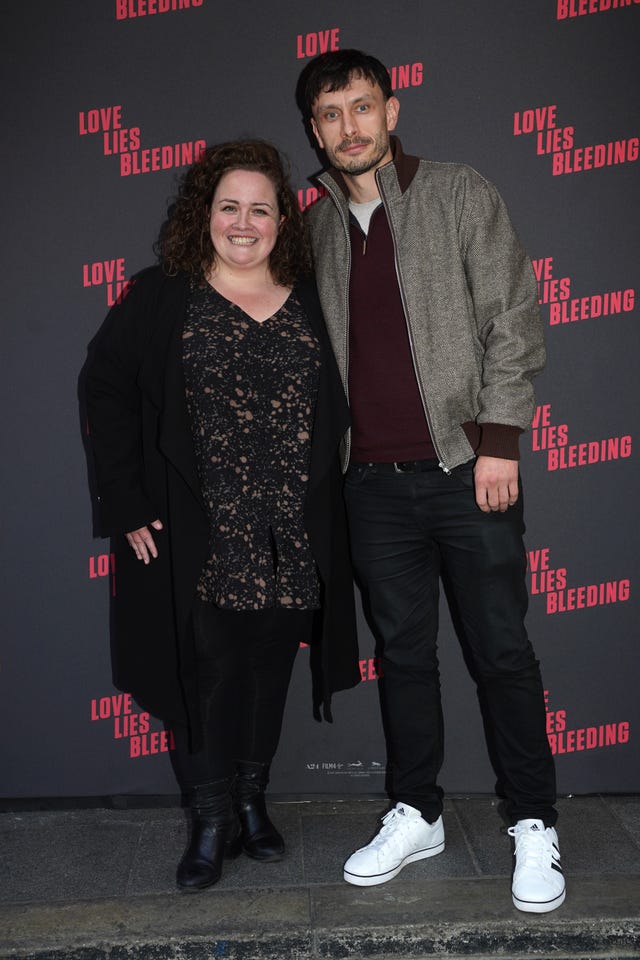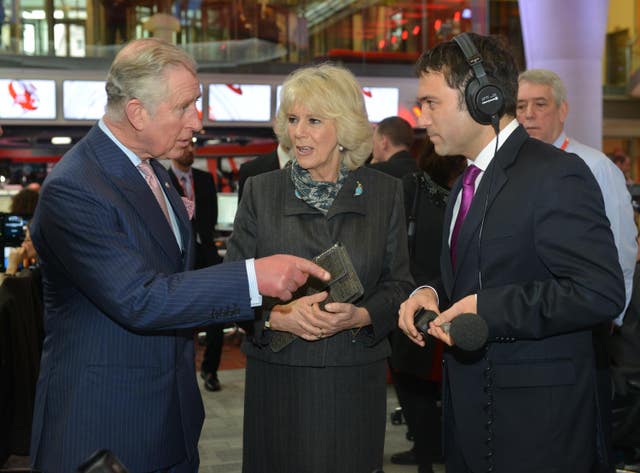Netflix ‘disappointed’ if Baby Reindeer true story claim detracts from show
Fiona Harvey came forward claiming to be the inspiration behind Martha, alleging the story is inaccurate, and filed a lawsuit against Netflix.

A Netflix boss says that the company would be “disappointed” if the true story claim at the beginning of Baby Reindeer detracts from the importance of the series which touches on issues of sexual assault and stalking.
Created by Scottish comedian Richard Gadd, and starring Jessica Gunning as his stalker Martha Scott, the dark comedy thriller has been under fire from those who claim to have been depicted by the series.
Fiona Harvey came forward claiming to be the inspiration behind Martha, alleging the story is inaccurate, and filed a lawsuit against Netflix.
At the beginning of the first episode, text appears on the screen which says: “This is a true story.”
When asked about the controversy surrounding Baby Reindeer, vice president of UK content at Netflix Anne Mensah told the Edinburgh TV Festival what is “amazing is that it really touched” people, citing an increase in men ringing hotlines to see help.

She adds: “It was important for those reasons, and if you feel it detracted from that I would be absolutely disappointed, but I absolutely stand by all the show.
“It’s drama, not a documentary.”
Ms Mensah also said publicity is “the antithesis of what I believe in”, when asked if the headlines about the show were good for Netflix.
She also said: “I really believe the UK is this amazing place for content creators and the writers and the directors… and it’s 100% about finding ways to take this space.
“It’s not about trying to manipulate anybody (with) an algorithm.
“The truth is way simpler, which is the audience is incredibly clever and incredibly diverse, and they spot good and not boring.”
When asked about safeguarding on the show, she said Netflix takes it “absolutely seriously”.
In the drama, said to be inspired by the real-life experiences of Gadd, his character Donny Dunn is hounded by Martha after he serves her a free cup of tea in the pub where he works.
In the TV series, Martha receives a nine-month prison sentence and a five-year restraining order, which Ms Harvey has disputed.
She said: “The problem for Richard Gadd and now for Netflix is that Baby Reindeer is not a true story at all.”
“I am not a convicted stalker”.
Earlier at another session, director of BBC iPlayer and channels Dan McGolpin said that there are “dangers about gatekeeping” under the new Media Bill, which updates broadcasting laws for the streaming age.
He said: “So if you look at the Media Act that has now passed, which is fantastic, but there’s a lot of interpretation there.
“For Ofcom… in fact, it enshrines appropriate prominence for the PSBs (public service broadcasters) in those places.
“But how that’s interpreted is still slightly open to question.
“We need to look at that … in the end, we all want a healthy PSB ecology to live alongside streamers, and that’s good competition.
“That’s closest to the golden age you’re talking about. That may not happen unless we ensure that those PSB programmes do get seen.
“So there are some risks there. I do think we need to support the media act and make sure it’s followed through.”
He also suggested that tax rules should be changed.
“I think we need initiatives as well, like specific things like comedy, for example, you only get tax breaks if it’s super high end, but actually, very few people are investing in comedy any more, the BBC wants to, but why should it only be tax breaks at the very high end?
“If you want that to be a successful genre, and that’s got its challenges in terms of short term gains, we need things like that.
“So there are lots of things like that I think the industry can think about in order to make sure we have that thriving PSB ecology in the future.
“Because, remember, the streamers are doing a lot of local stuff, partly because they’re competing with a thriving PSB ecology.
“So that’s … a really key point of why the PSBs need to be strong in this in the future, so we all get healthy competition.”
Ahead of the session on the future of TV, the BBC’s analysis editor Ros Atkins outlined issues within the entertainment industry.
He said the BBC, ITV, Channel 5 and Channel 4 are all “facing significant challenges”.

“The viewing hours on streaming for this year show that Netflix is over twice as big as anyone else. BBC is next, then Disney+ and Amazon Prime,” Atkins said.
“In the streaming market – where we know viewers are heading, where big tech is competing for ad revenue, where expensive tech development is crucial, the PSBs are there, they’re growing, but the majority of viewing isn’t with them, it’s with the global players.”





